Josh DeCarolis, Ross Flynn and Andrew Hannon combine a cafe, deli and butchery in their Transfer Co. Food Hall outpost.
by Addie Ladner | photography by Liz Condo
For Josh DeCarolis, a bologna sandwich isn’t that processed- meat-on-white-bread concoction most Americans envision. Rather, it’s a melt-in-your-mouth Mortadella Tagelle, made with pale-pink cured ham speckled with fat and pistachios, on bread that resembles a smaller, softer English muffin.
A tagelle is essentially the Italian version of a slider, which originated in the Bologna region of Italy before making its way west. It was DeCarolis’ go-to lunch while studying in Italy for five months at Le Vecchia Scuola Bolognese cooking school. While there, he’d frequent a medieval piazza for lunch, sampling various versions of the sandwich. “Tagelles are great because you order a few of them and get to try different things,” says DeCarolis, whose family has roots in Southern Italy.
Such was the inspiration for Alimentari at Left Bank, a counter tucked in a corner of Transfer Co. Food Hall. In Italy, an “alimentari” is essentially a convenience store, a place that offers fresh cheese, cured meats, a quick bite to eat and a few things to take home for dinner. “That was sort of the abstract inspiration for it,” says DeCarolis, who is also head chef and owner of Mother & Sons in Durham. He cooked up Alimentari along with Ross Flynn of Left Bank Butchery in Saxapahaw and Andrew Hannon, their head butcher. “We’d share ideas and stories about finding more ways to use Ross’ access to local meats, Josh’s knowledge of Italian food and my love of a deli. The three of us created this crazy model,” says Hannon.
An Ohio native, Hannon fell in love with sandwich shops when running a deli and butcher in undergrad at Miami University. After graduating, he started a career in software, but the idea of running his own deli and meat market was always in the back of his mind. In early 2019, as Transfer Co. Food Hall was opening in downtown Raleigh, the three conjured up the concept for Alimentari.
To create the menu, they enlisted Issac Shuman, who had previously worked at Mateo in Durham and studied culinary arts at Johnson and Wales University in Charlotte. “He helped me understand and fulfill the dream of becoming more of a full-service deli,” says Hannon. The menu offers a gamut of items, often using lesser-known cuts in inventive ways.
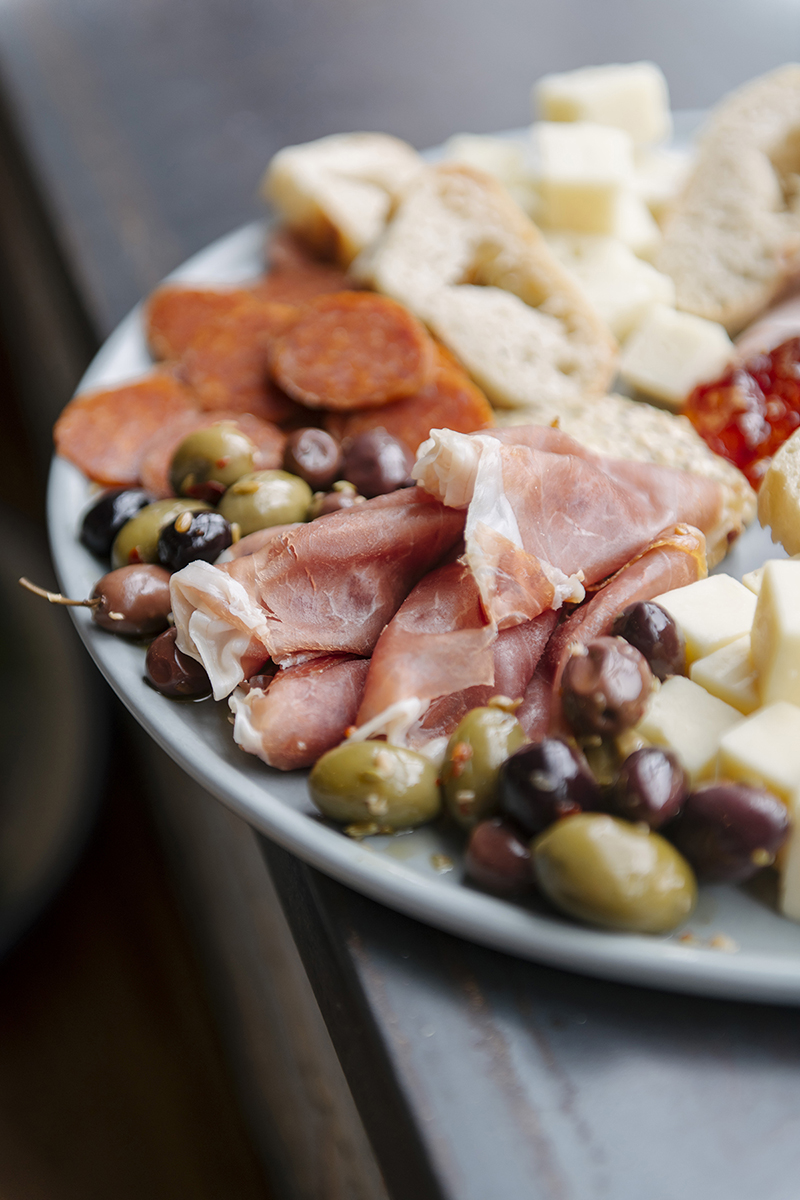
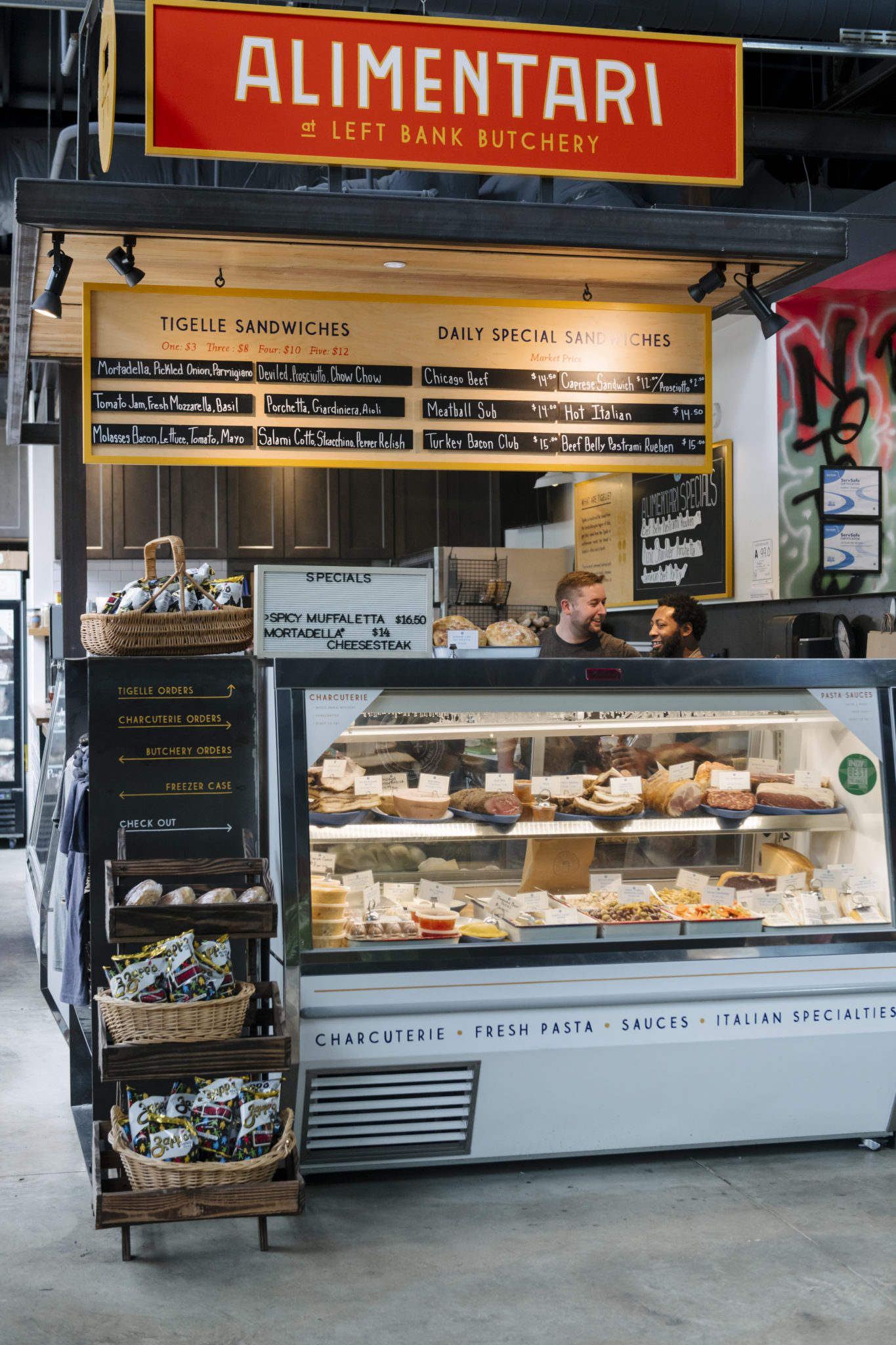
“I am a big proponent of not overdoing things and making a dish with just two or three ingredients,” says Shuman. “Having high-quality meats and local produce means I can manipulate it just enough.” In addition to the tagelles, there are large-format sandwiches inspired by classics from around the United States. One that they are especially proud of is the beef belly pastrami, made by curing the belly of the cow. “Some- thing like a beef belly wouldn’t typically get used for anything but ground beef. That’s my challenge, but it makes it fun, finding ways to use these parts of the animal,” says Shuman.
Inside the deli case, you’ll find sundried tomato and mozzarella salad, pesto, sauces, giardiniera (a classic Italian antipasto mix of pickled cauliflower, carrots and celery) and sausages to take home to grill. There’s a large selection of cheeses and cured meats — salami and pepperoni but also more obscure ones like guanciale, a dry-aged, cured pork jowl. “We’re one of the only people that make this on the East Coast,” says Hannon. There’s fresh, house-made pasta by the pound, pizza dough for a night in and steak for a weekend cookout.
Except for the cheese, which they source from local purveyors like Chapel Hill Creamery or Boxcar, and a few select Italian cured meats (“The Italians know what they’re doing, why mess with a good thing?” says Shuman), it’s all made in-house. The selection is largely Italian, but Shuman isn’t afraid to “adapt from the familiar,” he says, noting that a popular sausage they make has Thai influences, infused with coconut milk, cilantro and lemongrass. “I like to play a lot on the seasons; our summer lasts so long here and we’ve got access to great farms,” Shuman says.
From the butcher, it’s about variety: there are three kinds of pork chops, for example, and a rare cut called the Secreto, the pork version of brisket, made from the pectoral muscle. “We’re a true nose-to-tail butcher. We use all the parts of the animal, even the pork liver,” says Hannon. Alimentari works primarily with two farms to source the meat for butchering: Cane Creek Farm for pork and Braeburn Farm for beef, both in the Snow Camp area.
The hope is that when someone comes for a sandwich, they’ll learn more about the food, and leave with the inspiration (and ingredients) to try something new at home. “We’re meeting a clientele that might not make a special trip to a butcher,” Shuman says. It’s part of building a culture of enjoying food together. Says Hannon: “To me, delis are like coffee shops — they are the cornerstones of communities.”
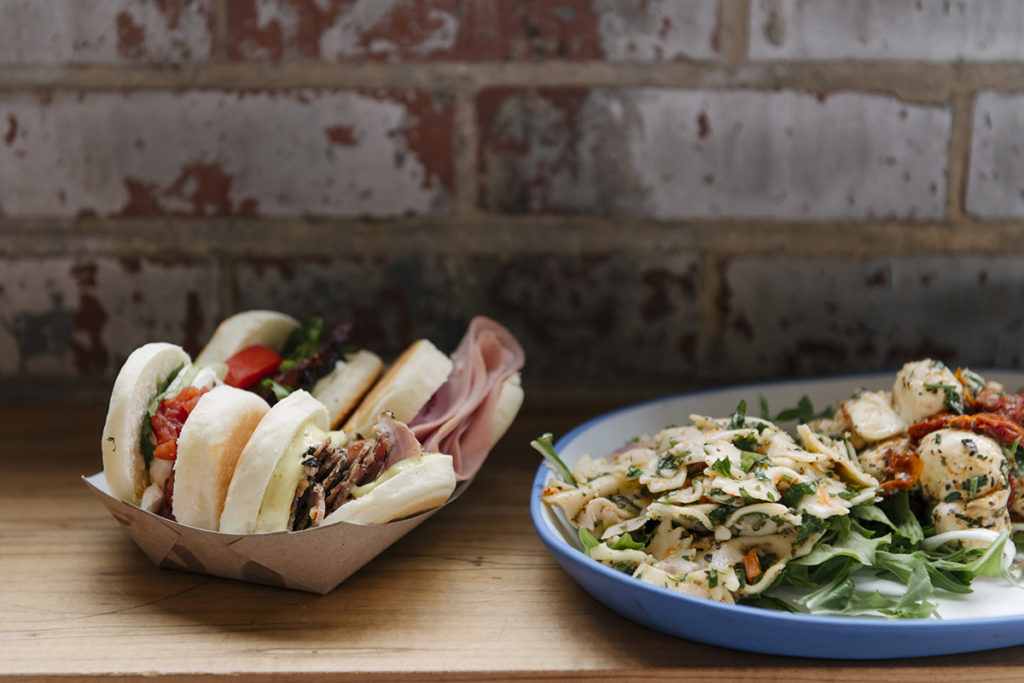
__
This article originally appeared in the June 2022 issue of WALTER Magazine.

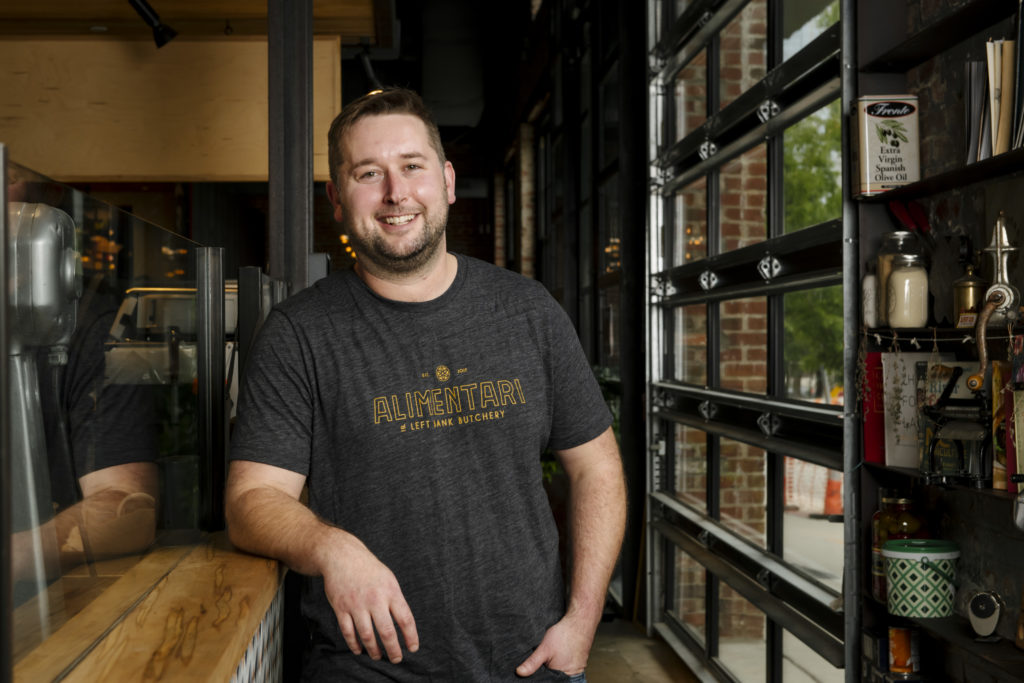
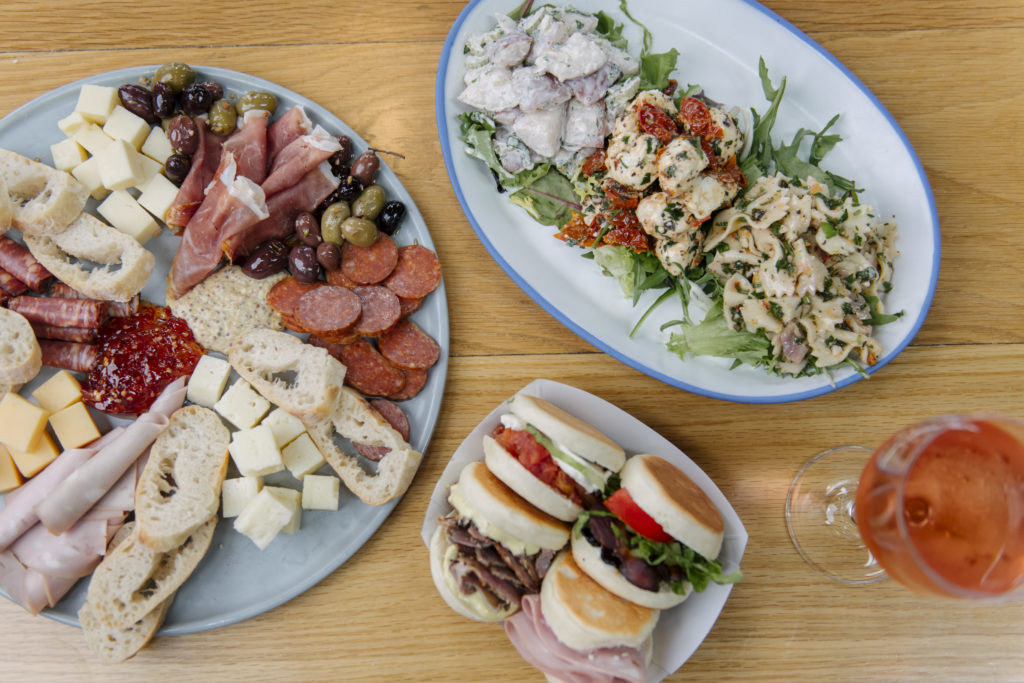
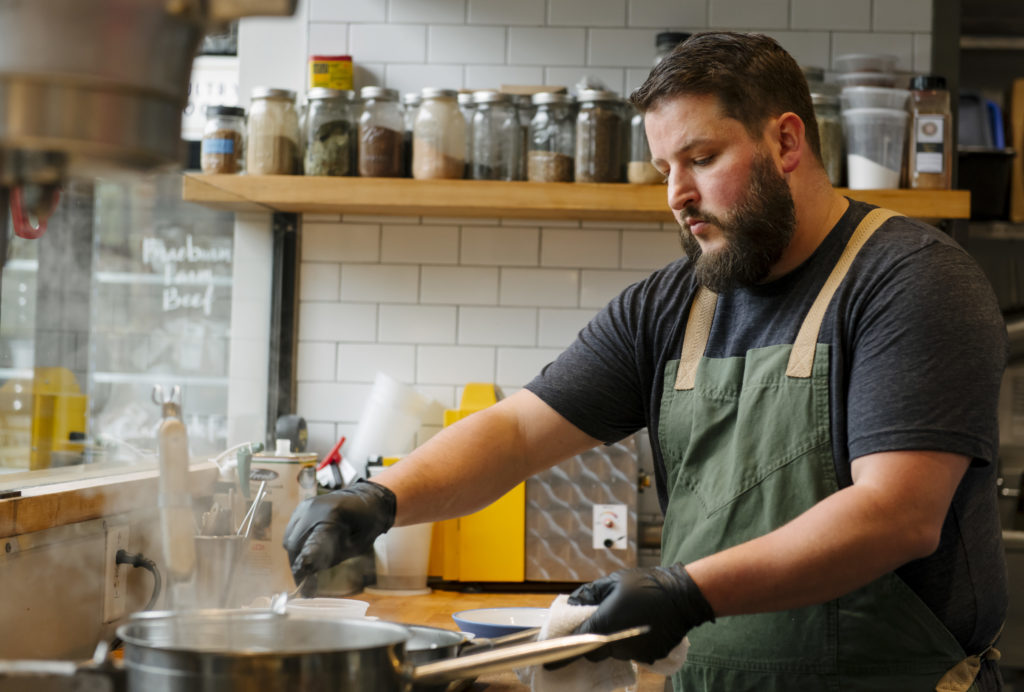
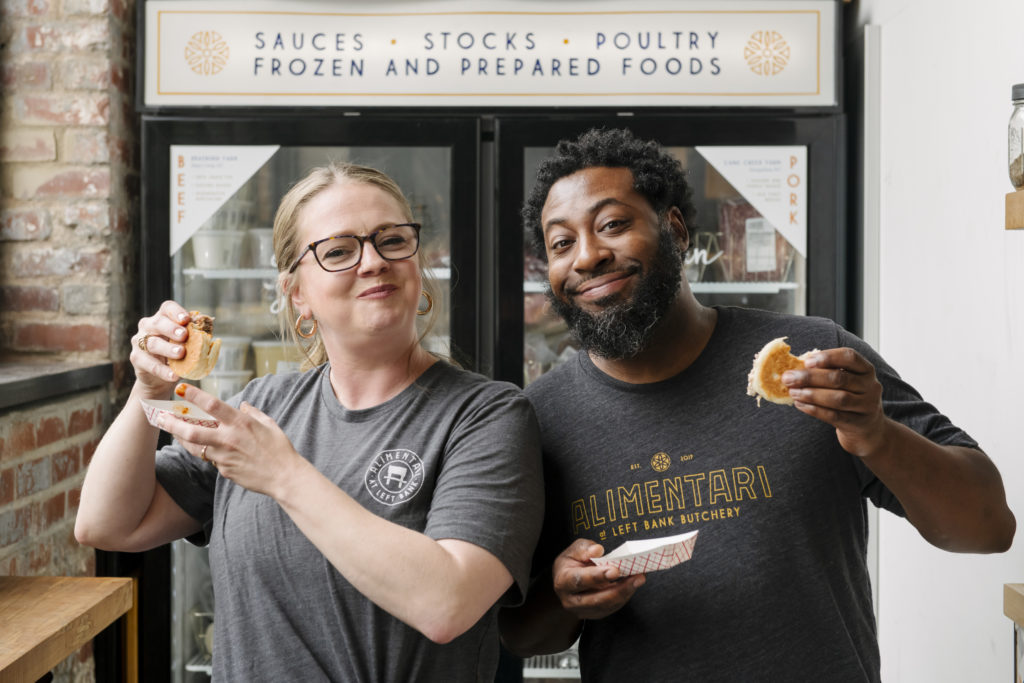
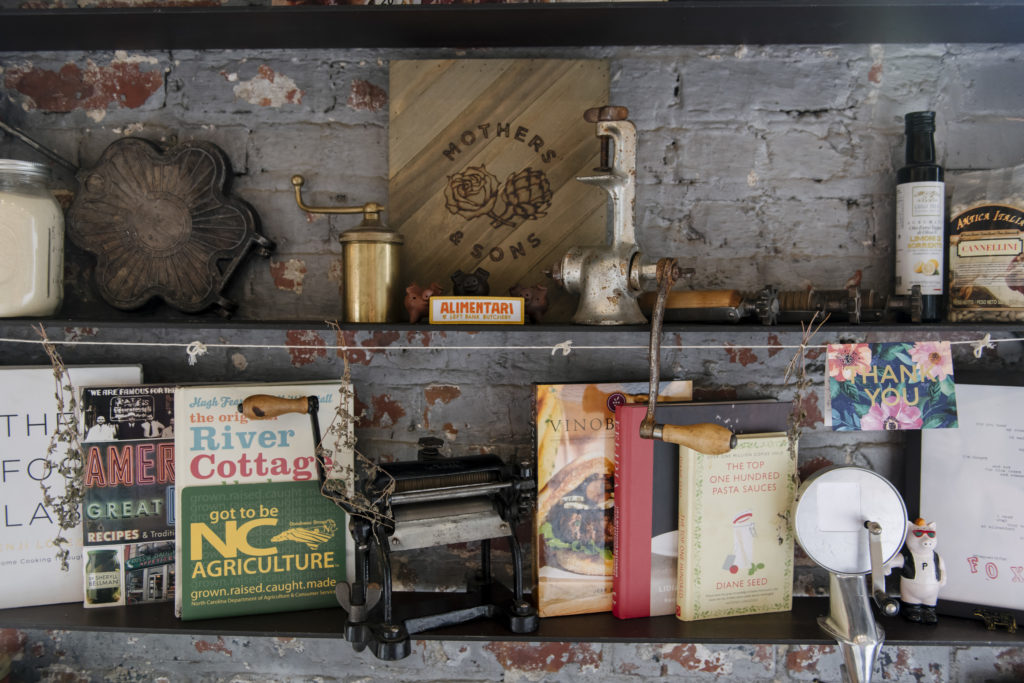
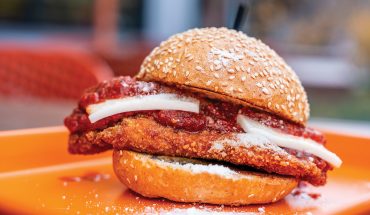
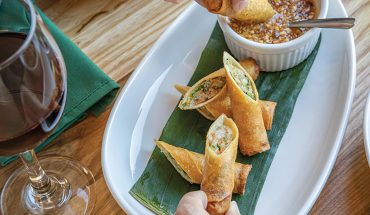
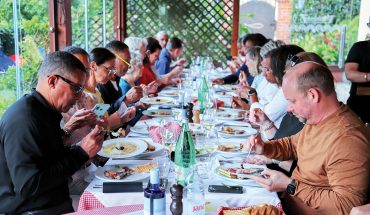
Pingback: 20+ things to do in June in and around Raleigh - WALTER Magazine